

T.I.Ps



ExecutiveEditor-SarahNaish SarahisaTherapeuticParent,an Adopteroffivesiblings,Bestselling internationalAuthor,Keynote Speakerandfounderofthree IndependentTherapeuticFostering Agencies SarahisalsoandcofounderandCEOatTheCentreof ExcellenceinChildTraumaC.I.C.
ManagingEditor-Kathryn Talbot
Kathrynisco-founderand managingeditoroftheTIPs magazine,atTheCentreof ExcellenceinChildTraumaCIC specialisinginpublicrelations.

ExecutiveEditor-SairPenna Sair(Sarah)isaTherapeuticParent, Author,ParentCoachandHavening practitioner Sairisalsoco-founder andDirectorofTraining,Qualifications &QualityatTheCentreofExcellence inChildTraumaCIC

Contributor-RussHartlandShaw RusssetupBreatheLeadership& BusinessCoachingin2020asa resultofadoptingandbecominga parenttotwoboysin2019 Hewas theninspiredtospecialisein TherapeuticParentingtosupport familiesnavigatingthechallenges ofearlychildhoodtrauma
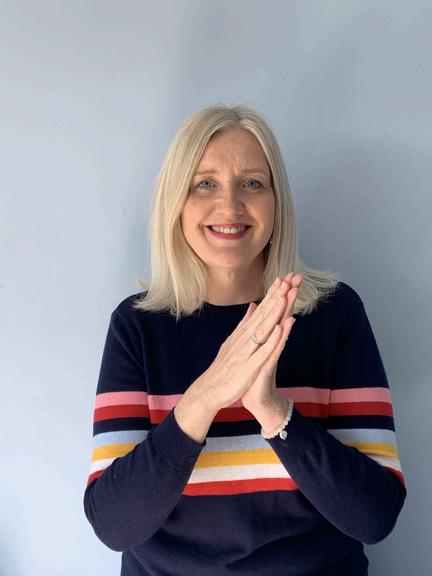
Contributor-NatalieFreeman NatalieisaCertifiedHavening Practitioner&Trainer Shehasa backgroundasaCounsellor workingwithtrauma,using Haveningtechniques,CBT,TA& NLP Natalieisalsoanadopted child.


Contributor-JessicaSpenceley Jessicaisatherapeuticsocial workerwithover20yearsof experiencehelpingadoptiveparents navigatetheirparentingjourneys usingtheattachment-based, trauma-informedparenting approachofTBRI®

Contributor-SarahDillon SarahisaTherapeuticParent,an AttachmentTherapist,Keynote speaker,formerchildincare, Author(TherapeuticParenting) HeadofTherapeuticServices (Fostering)

Contributor-AmandaMeusz Amandaisafamilybarristerat GardenCourtchambers,sheisa passionateadvocatefortherightsof childrenandthemostvulnerable parentsinsociety Amandahas developedatraumainformed approachtoherworkalongwithsome innovativepracticestoassistthemost vulnerableclientsinnegotiating proceedingsandtheaftermathof proceedings Sheisamentorand championforLawyersWhoCare.
Contributor -LucyBarnes LucyisabarristeratEastAnglian Chambersspecialisinginfamilyand civillaw.Lucyisalsoco-founderand trusteeofLawyersWhoCare,theUK's firstandonlycharitytosupportcareexperiencedaspiringlawyers Lucyis care-experiencedherselfanda committedadvocatetobreakdown barriersforhercommunity

Contributor-AJGajjar
AJisaParentingandTrauma Consultant,childdevelopment specialist,andchildren'sadvocate She supportsprofessionalswithinthe domesticviolence,familylaw,children's mentalhealthandchildprotection sectorstorecognisethedetrimental effectsofdomesticviolence,highconflictdivorceandmaladaptive parentingonchildren



festive season special of Ask the Experts
We would like to take this opportunity to thank all the contributors who have written articles for us this year. We also extend our gratitude to all of the families and supporting professionals within the CoECT community, with whom we support and work with Wishing you all a peaceful festive season and a wonderful start to the New Year!
Warmest wishes
Sair, Sarah & The Team at The Centre of Excellence in Child Trauma C I C
Introduction
This report presents findings from a survey of 166 individuals with direct experience in the UK family court system Respondents include carers, guardians, and professionals involved in child protection The aim is to assess whether family courts are fulfilling their core purpose: safeguarding the welfare of children in care and custody proceedings
The survey responses reveal systemic issues that raise serious concerns about the effectiveness, fairness, and child-centredness of current family court practices
Methodology Methodology
Sample Size: 166 respondents
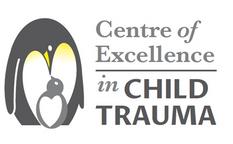

Respondent Profile: Carers, Guardians, Child Protection Professionals
Data Collection: Anonymous survey with open-ended and thematic questions
Focus Areas: Judicial decision-making, child trauma awareness, contact orders, reunification practices, role of social services, and overall system satisfaction
Key Findings

Judicial Understanding of Child Trauma
Findings 1. Judicial Understanding of Child Trauma
A significant number of respondents reported that judges lacked adequate understanding of child trauma and its long-term effects
Supporting Professionals, including CAFCASS officers, were also perceived to have insufficient awareness of trauma-informed practice
This knowledge gap was seen to contribute to decisions that failed to protect children’s emotional and psychological wellbeing
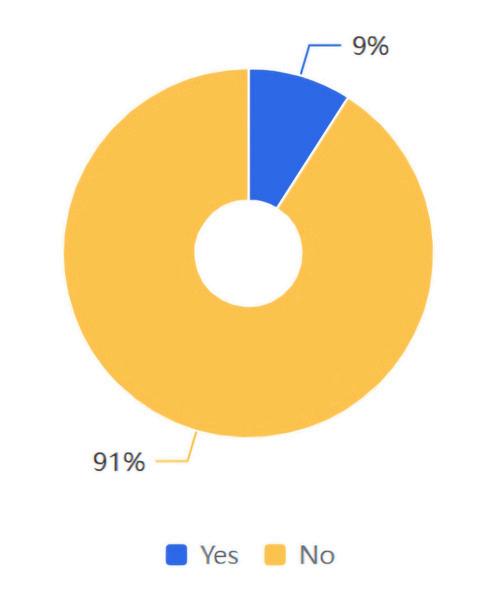
2. Prioritisation of Parental Rights Over Child Welfare
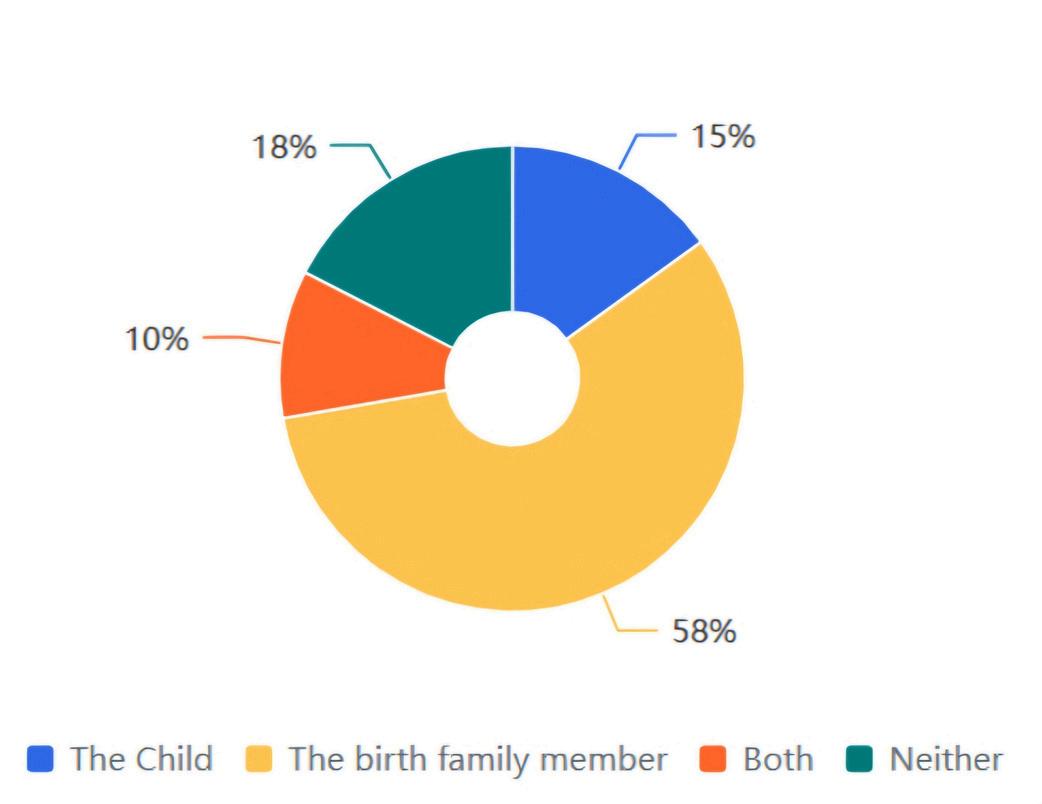
Numerous cases were cited where courts enforced contact between children and abusive birth parents.
Reported consequences include
Emotional withdrawal and distress
Repeated exposure to emotional, physical, and sexual abuse
Respondents expressed concern that such orders ignored professional safeguarding advice.
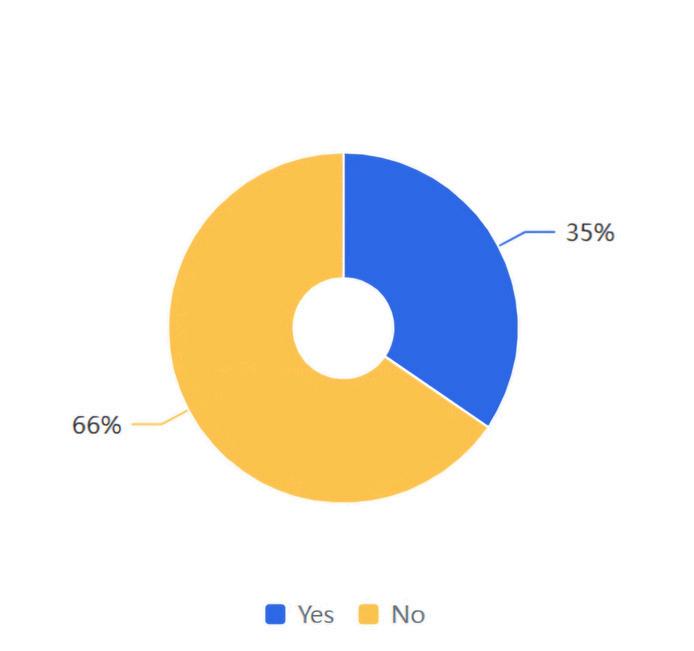
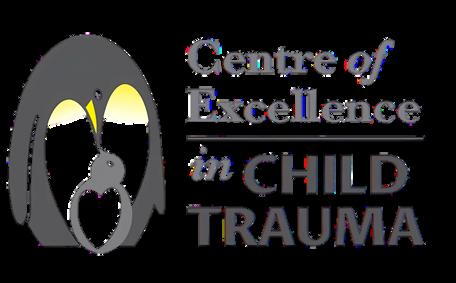

Many respondents felt that courts placed greater emphasis on parental rights than on the best interests of the child.
This prioritisation often led to decisions that were considered risky or harmful, particularly in cases involving known abuse or neglect

Respondents detailed cases where children were returned to unsafe environments, leading to:
Recurrence of neglect or abuse
Emergency re-removals within months
Long-term psychological damage, such as trauma from witnessing parental breakdowns
5. Role of Social Services
In the survey Social services were frequently criticised for:
Failing to oppose harmful court decisions
Prioritising procedural compliance over child welfare
Ignoring or downplaying concerns raised by professionals
Respondents felt that social workers were constrained by bureaucracy and lacked the authority to challenge judicial decisions effectively
“Neglect and abuse happened within 4 months of return.”


“Returned at 5 months, back into care at 9 months.”
The family court system was widely described as:
Biased and ineffective
Traumatic and disempowering for children
Emotionally exhausting for carers and professionals
Children’s voices were reportedly ignored or marginalised in proceedings
Carers expressed burnout and disillusionment with the child protection system as a whole
Conclusion & Recommendations
“Neglect and abuse happened within 4 months of return.”
“As long as they tick the box – that's all that matters.”
The survey findings strongly suggest that UK family courts are failing to fulfil their fundamental purpose: protecting children. Systemic flaws including inadequate trauma awareness, prioritisation of parental rights, and ineffective social services are contributing to decisions that may endanger vulnerable children.
To restore trust and ensure child protection remains central to family court decisions, the following reforms are urgently needed:
Mandatory trauma-informed training for judges, guardians, and social workers
Child-centric decision-making frameworks that prioritise safety and wellbeing over parental entitlement
Independent oversight mechanisms to review and challenge harmful court orders
Enhanced support for carers and professionals, including mental health resources and legal advocacy
Procedural reforms to ensure children’s voices are heard and respected in all proceedings
Recent Reforms
Recent reforms in October 2025 signal a significant change in the UK’s family court system, particularly the removal of the “presumption of parental involvement” when a parent poses a risk, prioritising child safety Increased transparency and a focus on non-court resolutions reflect awareness of systemic issues. While these changes are promising, effective implementation and further reforms are essential to ensure all family court decisions prioritise children's wellbeing and protection
Developing a trauma-informed practice in the family courts
Written By Lucy Barnes & Amanda Meusz



damage Higherlevelsofreactivity withinthebrainofindividualswith PTSDandC-PTSDisoftenobserved. Thesympatheticnervoussystem (stresssystem)issuperchargedbut theparasympathetic(restand digest)systemmaynotbefully engaged Restitselftosomewho haveexperiencedtraumacaneven betriggering Prolongedexposureto highstresschemical,orcortisol, levelscreatesreactivitystress There isawealthofevidenceastothe impactonthelongtermphysical andmentalhealthofexposure trauma Thepointthatweare makingistraumaliveswithinthe individualandhaveongoing physiologicalimpact.Traumaisnot somethinganindividualcanthink theirwayoutof Itisstoredintheir bodies.
Somepeoplewithahistoryof traumaoftencannotputintowords theiremotionalfeelingsand frequentlyhavedifficultysensing whatisgoingonintheirbodies Theycanreacttostressinwaysthat willaffecttheirevidence.Itis importanttounderstandthat traumaticexperiencescansensitise limbicreactivitysuchthateven minorstressorscanprovokea traumaresponse,orafight,flight, freezeorfaintresponse Inthisstate thebrainisinsurvivalmodeandthe “thinkingbrain”isnolonger engaged Inthisstateanswersto questionswhetherincourtorduring ameetingwithprofessionalsare unlikelytobereliable.Timeandtime againclientsreport,aftermeeting withprofessionalstoundertake assessmentsandaftergiving evidencethattheyhavenotsaid whattheymeanttosay,theyhave beenmisunderstoodorsometimes theyhavegivenanswersjustto maketheprocessofquestioning stop Theywillsayyesinastateof fawnorlookcalmandcool, becausetheirbodiesarestuckina dissociativestate.Ortheywillgo quicktoangerbecausetheirbrain tellsthem“fight,now!”Thisisnot


buildrapportsotheriskofre
traumatisationincreasesasquestions areasked.Itisimportanttosetclear groundrulessothatadvocatesand thecourtisawareoftheriskofretraumatisationtheriskofatrauma responseandhowtoassist regulation
Thepreparationof “onepage profiles” or‘aboutme’documents, createdbyAmandaMeusz,setting outapenportraitoftheclient, mattersthatareimportanttothem, identifyingtheirtriggers,howtospotif aclientismovingoutsidehisorher zoneoftoleranceandwhattodoto helpregulatethemcanbeareally helpfultool.Thisdocumentcanbe madeavailabletoallprofessionals involvedinthecasethroughout proceedings Ifusedproperlyother professionalscanavoidtriggeringa traumaresponsewhichwillenable betterengagement Understanding whatishappeningphysiologically helpsusaspractitionersmovefrom beingtraumaawaretotrauma informed
Understandingthattraumaresponses arenotvoluntary,areoutsidea client’scontrol,helpspractitioners makeappropriateadaptationsinour approachtorepresentation.Bespoke participationdirections,overand abovetakingregularbreaks,canbe soughtwiththeaimofprovidingreal assistancetoparticipationand regulation
Practitionersshouldacquaint themselveswiththeAdvocates GatewayToolkitsinparticularbutnot limitedtoToolkit10whichdealswith theidentificationofvulnerabilityand Toolkit13whichrelatestovulnerability inthefamilycourtsandtheextensive legislativeframeworkwhichdeals withvulnerability


ThismarksSarah'sfirstspeakingengagementinAustralia,whereshewill shareherexpertiseonsupportingchildrenaffectedbytrauma FormoreinformationabouttheconferenceandAdoptChange,please followthelink2025NationalFoster&KinshipCareConference:Empowering CarerstoTransformLives
https://wwwadoptchangeorgau
Next cohort starts January 2026

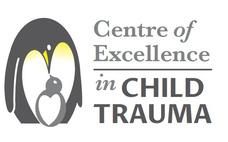


Written By Jessica Spenceley
Conflictisanormalpartof adolescence Teensarewiredto testboundaries,pushfor independence,andask inboth spokenandunspokenways WhoamI?WheredoIbelong? HowmuchcontroldoIhaveover mylife?
Foradoptedteens,these questionsoftencarryanadded layerofintensity.Theirsearchfor identitymaybringthepastback totheforefrontinpainfulor confusingways.Theirpushfor autonomycantriggerdeepfears ofrejectionorabandonment.And whatlookslikedefiancemay actuallybeyourteennavigating thetensionbetweenstaying connectedtoyouandstretching towardtheirownindependence
ThisiswhereTrust-Based RelationalIntervention®(TBRI®) canmakeallthedifference TBRIis atrauma-informedparenting approachthatgivesyoupractical toolsfornavigatingconflict withoutlosingconnection Instead offocusingonlyonstopping unwantedbehaviour,TBRIhelps youlookbeneaththesurfaceto understandwhatyourteen’s actionsarereallycommunicating Throughitsprinciplesof connection,empowerment,and correction,TBRIhelpsyouhold boundariesinwaysthatfeelsafe, respectful,andeffective


youholdthemmakesallthe difference Choices,collaborative problem-solving,andcalmbutfirm follow-throughcommunicateboth respectandsafety
Let’ssaythatyourteenkeeps ignoringtheagreedtimetohandin theirphoneatnight Ratherthan confiscatingitforaweek,yousit downtogetherandacknowledge thestruggle: “Iknowit’shardtoput yourphoneaway itfeelslike you’remissingoutwhenyourfriends arestillonline” Thenyouinvite problem-solving: “Weneedaway foryoutorestatnightandstillfeel connectedtoyourfriends Let’s figureouttogetherhowwecan makethiswork.” Byholdingthe boundarybutworkingasateam, youshowthatcorrectionisn’tabout controlbutaboutbuildingtrustand responsibility.
WhenConflictBecomesConnection
Conflictisapartofyourteen’s journeytowardindependence. With TBRI,conflictdoesn’thavetobea dailybattlefield Instead,itcan becomeaplacewheretrustgrows deeper,wheresafetyisreinforced, andwhereyourteenlearnsthatlove doesn’tdisappearinhardmoments
“What
to do when nothing works”
Becauseconflictisn’ttheenemy Disconnectionis Andwhenyou parentfromaplaceof connection,eventhehardest battlescanbecome opportunitiestobuildthetrust thatlasts.
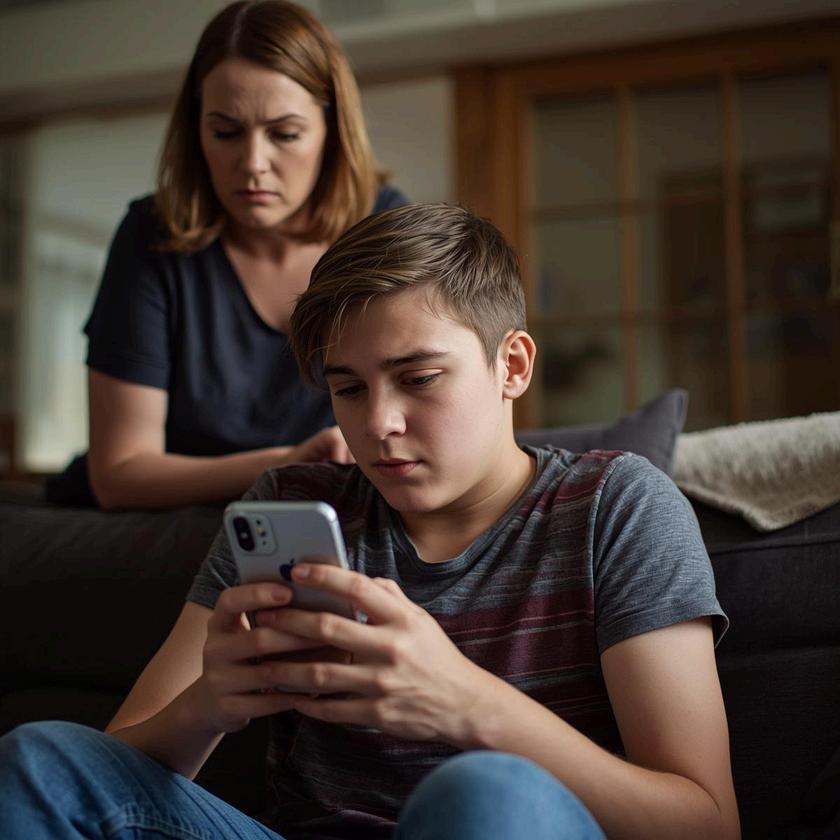
Thismonth,SarahNaishandSarahDillon deliveredthe“WhattoDoWhenNothing Works”workshopforstafffroma ResidentialChildren’sHome.Theywere joinedbyfellowCOECTTrainerGareth Thomas,andtogethertheysharedtheir knowledgeandexpertisewiththe delegates.
Theworkshopprovidedpracticaltools, valuableinsights,andheartfeltsupport forthoseworkingwithchildrenincare.
Ifyou’dliketolearnmoreaboutthe learningopportunitiesweofferto ResidentialChildren’sHomestaff, includingourworkshopsandthe upcominglaunchofourLevel3 qualificationforResidentialChildcare, in2026,pleasegetintouchvia info@coectcouk
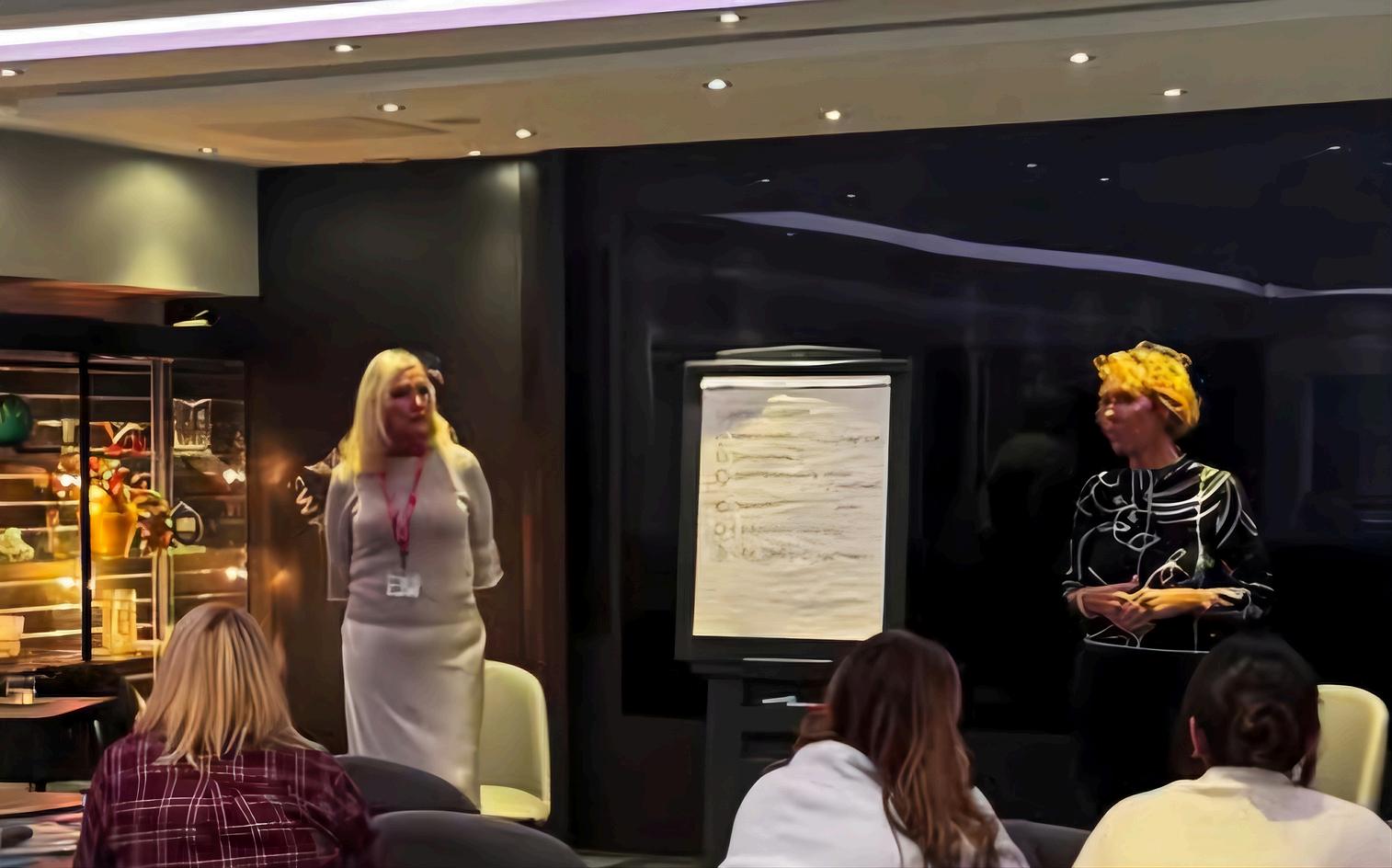


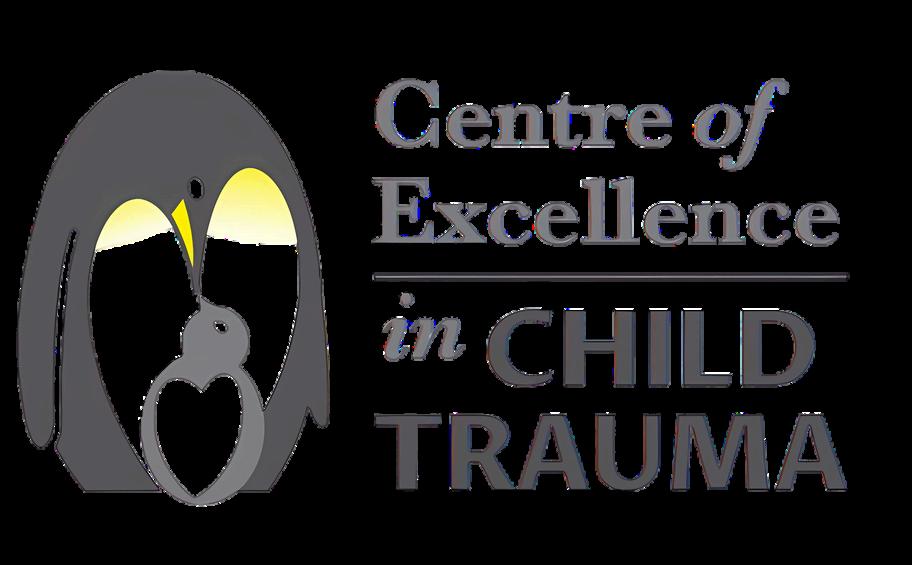
Why Attend?
Alleviate burnout and exhaustion
Connect with fellow parents and carers
Identify triggers and alleviate related stress
Develop a well-being plan to prevent compassion fatigue

What You'll Experience:
Therapeutic coaching & mindfulness techniques
Simple tools to use to support your wellbeing
Group reflection
2 course lunch
Afternoon of relaxation in the spa
Date & Time: Friday 30th January, 10 am - 4 pm
Cost: £150 plus VAT, per person
Location: Delta Marriott, Shurdington Road, Brockworth, Gloucestershire
To book, click on the link or scan the QR code
https://tinyurl.com/4pzady4k
Courts&SocialCare
Written by Sarah Dillon
Wemustallowourfostered childrentobelievethattheybelong intheirfosterfamilywhilsthaving ongoingvisitswiththeirbirthfamily ifitissafetodoso Forthisreason,I wouldlikethefamilycourtstousea traumainformedlenswhenmaking anorderforcontact/birthfamily visits Atthemomentitfeelslikeitis aonesizefitsallandaboxticking exercise.Itisimperativethat Judgesandothercourtofficials haveanunderstandingofhow difficult,triggeringandpainfulthese visitscanbe.I’mnotsuggesting theydon’thappenbutIbelievethey needtobemorecloselymonitored Italsoneedstobeeasierforsocial workerstogobacktocourtto adjustsuchorders
Currently,weareusingourown BehaviourAssessmentTool(BAT tool/form)toillustratehowa

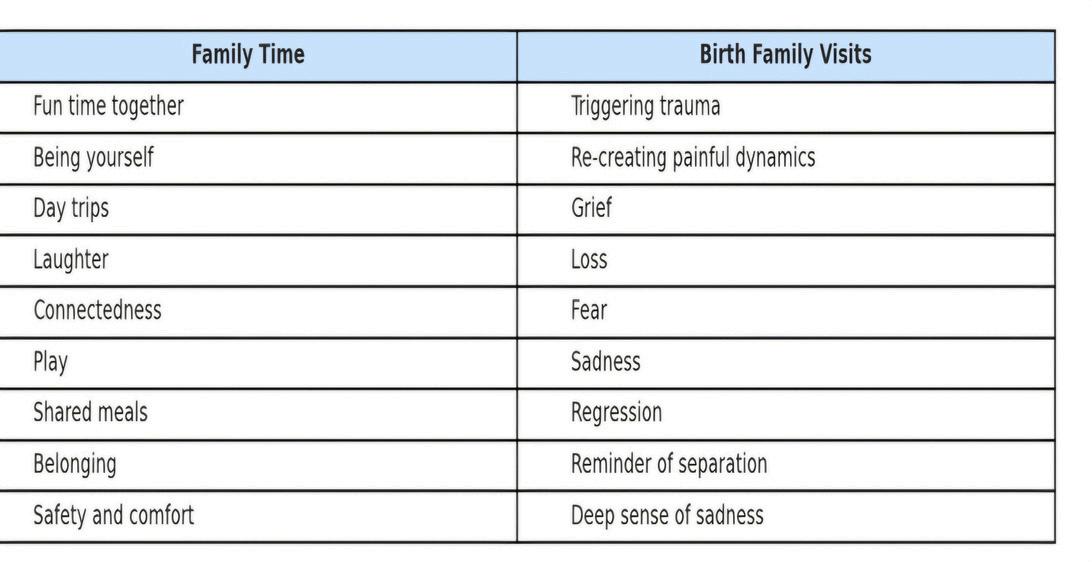

Written by Lisa Aldous

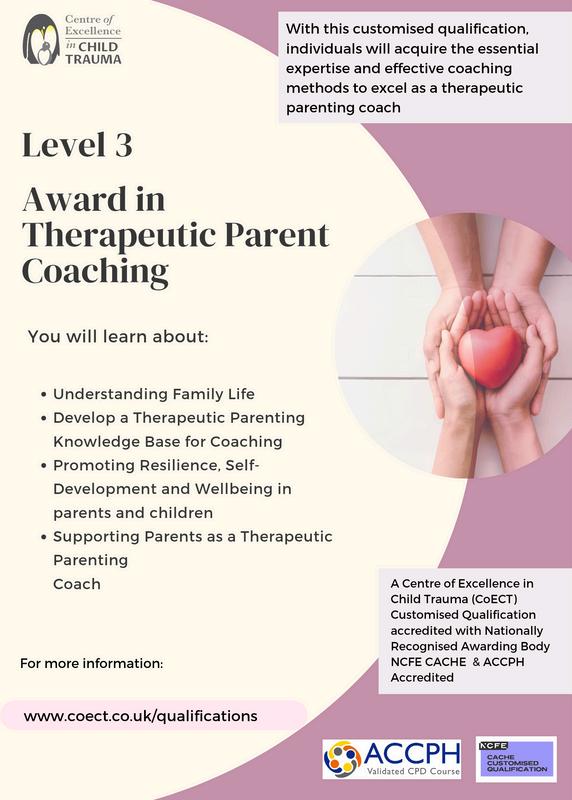
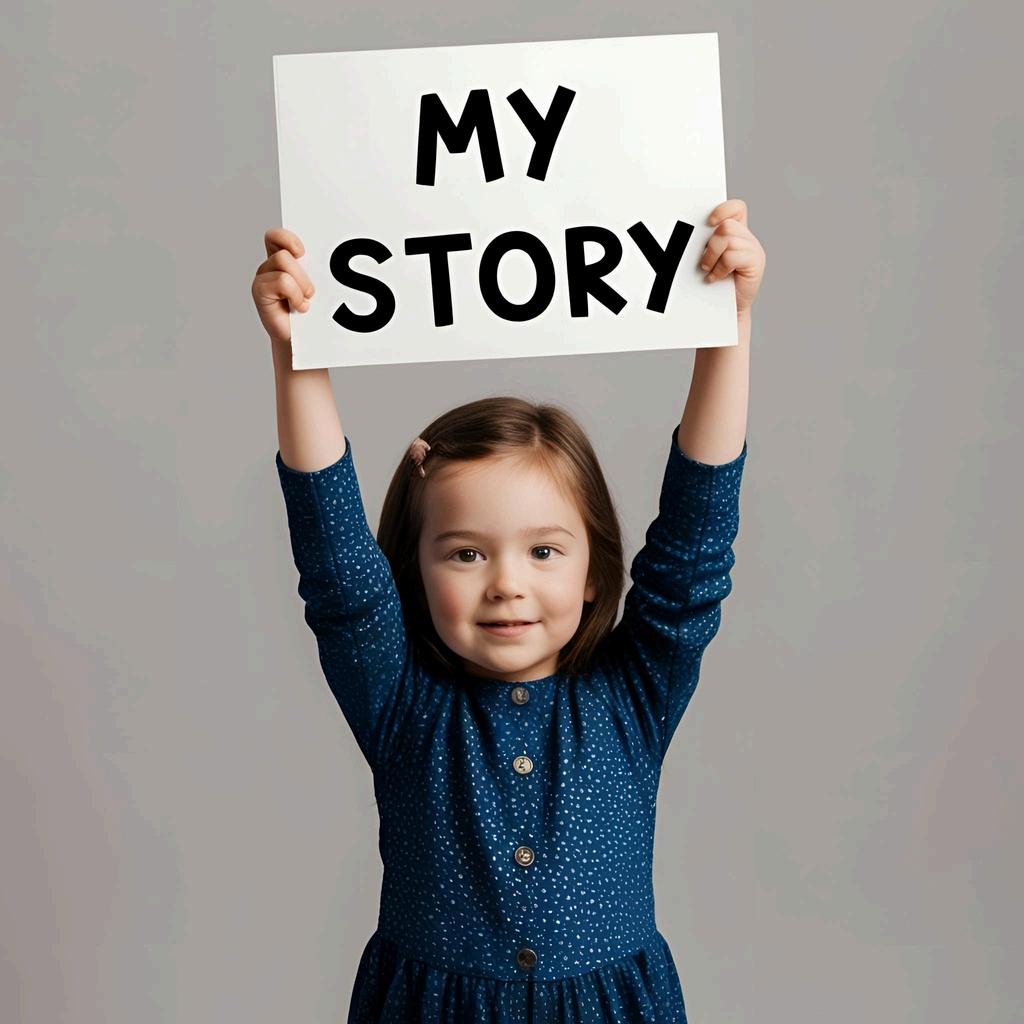
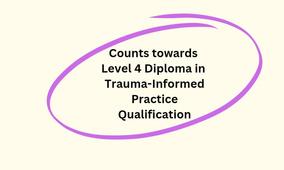

https://www.coect.co.uk/traumainformed-life-story-work
Family Court and the need for Trauma-informed Practice
Written By AJ Gajjar
Forthepurposesofthisarticle,andtoprotectconfidentiality,thechild’s nameandelementsoftheirsituationhavebeenchanged;theywillbe referredtoasChloe.
Chloeisnineyearsold.
Herparentsseparatedeightmonths ago Sincethen,shehasn’tseen muchofherdad he’sbeenbusy gettingsettledintohisnewplace They’veagreedtosharecustody 50/50 AlthoughChloe’smomwas hesitantatfirst,havingalwaysbeen herprimarycaregiver,shehoped thatsharedparentingwouldgive Chloestabilityandsupportfrom bothparents.
Forawhile,thingsseemedfine Chloelookedforwardtovisitswith herdad.She’dcomehomesmiling, talkingaboutallthefunthingsthey didtogether,andeagerlyanticipate thenexttransition.Butabouttwo monthsago,somethingchanged. Chloestarteddreadingtransitions “DoIreallyhavetogotoDad’sthis week,Mom?”“CanIjuststayhere?”
Hermomencouragedhertogoand triedtomakethetransitionseasier offeringideasforfunactivitiesor packingChloe’sfavouritesnacks. Buttheresistancegrewstronger So didChloe’sdistress Thecheerful littlegirlbecameanxious,angry,and explosive mostlytowardhermom.
Chloe’smombegantowonderwhat herdaughterwastryingtotellher throughthisbehaviour That’swhen thefamilylawprofessionalsgot involved
Aparentingevaluatorarrivedon transitionday Chloewas
dysregulated crying,yelling, refusingtoleave Theevaluator observedthechaosandconcluded thatMomlackedstructureand discipline,notingthatsheappeared overwhelmedandunableto manageherchild’sbehaviour.
Thefollowingweek,theevaluator visitedDad’shome There,shefound averydifferentChloe:calm,quiet, compliant Theevaluatorconcluded thatDadprovidedthestabilityand environmentChloeneeded Her reportrecommendedincreasing Chloe’stimewithherfatherand reducingtimewithhermother a decisionthatleftChloedevastated
Whattheevaluatordidn’tsee and whattoomanyprofessionalsin familycourtstillmiss isthat Chloe’sbehaviourwasn’tasignof poorparentingorlackofdiscipline It wasasignoftrauma
Heraggression,defiance,and refusaltogotoherdad’sweren’t indicatorsofmanipulationor alignmentwithoneparent They weretheoutwardexpressionsofa childindistress achildwhose nervoussystemwasoverwhelmed andwhosesenseofsafetyhadbeen compromised.
Survivalresponsessuchastheseare easilymisinterpretedwhena professionalisnottraumainformed Theyseethecalm,

compliantchildas“well-adjusted” andthedistressed,dysregulated childas“problematic.”They assumetheparentassociatedwith distressmustbethecauseofit, ratherthanthesafeplacewhere thechildfinallyfeelssecureenough toreleasewhatthey’vebeen holdinginside
Thisishowharmhappens not throughmalice,butthrough ignoranceandmisunderstanding Andit’shappeningeverydayin familycourts
Everyday,childrenlikeChloeare beingforcedtolivein psychologicallyandemotionally unsafeenvironmentsbecause systemsdesignedtoprotectthem continuetooperateona frameworkofparentalrightsrather thanchildsafety Childrenare expectedtospendtimewitheach parent,purelybecausetheyare theirparent Thereisno considerationforparentalcapacity, thechild’sfeelings,oreventhe slightestbitofcuriosityaround wherethesefeelingscomefrom Childrenarefrequentlyplacedwith parentswhoareunabletosupport theiremotional,psychological,or developmentalneeds requirementsfundamentalforboth

wellbeingandhealthydevelopment andinsomecases,especiallyin casesofparentalcoercivecontrol, oftenexposedtoconsiderableovert harm.Tosaythatfamilycourtsneed trauma-informedprofessionals wouldbeanunderstatement
Beingtrauma-informedismore thanjustrecognisingthattrauma exists.
It’stheunderstandingofhow traumacompromisesbrain development,shapesbehaviour, andholdsimplicationsforlong-term mentalhealth;howfearandsurvival responsescanappearasanger, avoidance,orevenascalmand obedience.It’saboutgettingcurious andaskingquestionswhentheir behaviourchanges Aboutbeing abletodistinguishbetweenachild whoisresistingcontactbecauseof fearandonewhoisresistingoutof manipulation andcritically understandingthatthetwoarenot thesame.Itrequiresprofessionals fromjudgesandlawyersto evaluatorsandmediators tolook beyondsurfacebehavioursand understandtheemotionalcontext underneath
Trauma-informedpractice,isabout askingdifferentquestions,gathering differentkindsofinformation,and weighing“evidence”differently Most importantly,it’sabouttakingeach individualchild’ssituationinto considerationandmakingdecisions thatareinthebestinterestofthat child,withoutperpetuatingfurther harm.

Howmightatraumainformed professionalevaluateChloe’s situationdifferently?
Byaskingtherightquestions
Bybeingcuriousaboutwhatwas happeninginChloe’sworldandwhat herbehaviorwastryingto communicate
Atrauma-informedevaluator,could havelookedatChloe’scaseand consideredwhyherdistress emergedonlyinrelationto transitions,whyherangerwas directedathersafeparent,andwhat herbehaviourmightrevealabouther internalworld Insteadofassuming thatcalmequalsemotionalhealth anddistressequalsdysfunction,they wouldhaveexaminedthepossibility thatChloewasexpressing symptomsoffear,coercion,oralack ofemotionalsafety Butthat’snot

whathappened Theabsenceof trauma-informedpracticeiscausing irreparableharmtosignificant numbersofchildren Itisnotonlya gapinprofessionaldevelopment,but detrimentalinensuringchild protection Trauma-informedpractice mustbearequirement,notanoption forprofessionalsworkingforthe welfareandwellbeingofchildren. Ifwetrulywantthebestinterestsof childrentobeservedthroughfamily court,wemustensurethatevery professionalwhotouchesafamily’s caseistrainedtorecognisethe presentationandimpactsoftrauma Becausewhetheraprofessionalis traumainformedornotinformsthe decisionstheymake Andthe decisionstheymakewill fundamentallychangethetrajectory ofthatchild’slife
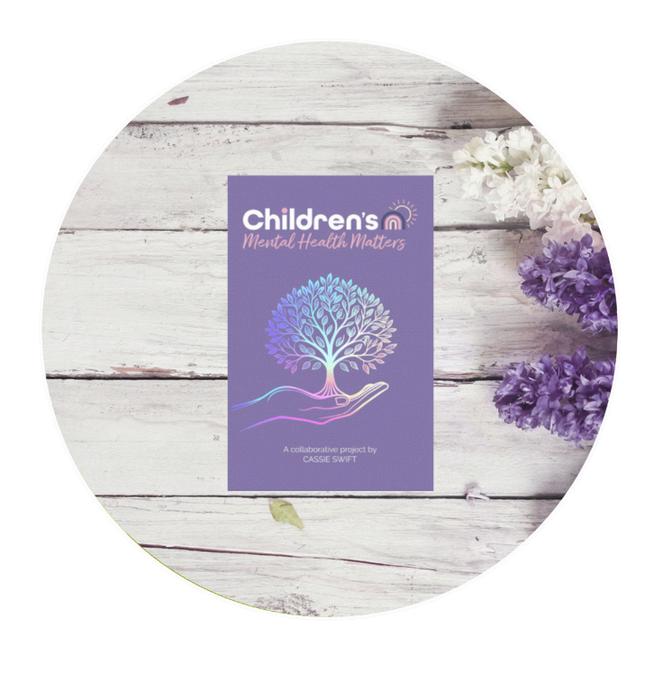
UPCOMING EVENTS
CoECT Training, Workshops & Events Schedule 2025/2026

Our training days are open to parents, carers and supporting professionals in the health, education and social care sectors. Some training days count towards part of the Level 4 Diploma in Trauma- informed Practice, as indicated below.
Trauma-Informed Practice
Trainer: Gareth Thomas
Wednesday 14th January 2026, 10:00 am - 3:00pm, Gloucestershire
Wednesday 13th May 2026, 10:00 am - 3:00pm, Manchester
Understanding behaviour as a mode of communication
Trainer: Gareth Thomas
Wednesday 4th February 2026, 10:00 am - 3:00 pm, Gloucestershire
Wednesday 17th June 2026, 10:00 am - 3:00pm, Manchester


Understanding and Addressing Unmet Needs in Children through Therapeutic Parenting and Trauma-Informed Care
Trainer: Sarah Naish and Sarah Dillon
Monday 23rd March 2026, 10:00 am - 3:00 pm, Gloucestershire
Tuesday 14th July 2026, 10:00 am - 3:00 pm, Manchester

BAIRT - Behaviour Assessment of Impact and Resolution Tool
Trainer: Sarah Naish
Tuesday 3rd February 2026, 10:00 am - 3:00 pm via Zoom
Tuesday 23rd June 2026, 10:00 am - 3:00pm via Zoom

Introduction to Trauma-Informed Life Story Work
Trainers: Sarah Naish and Sarah Dillon
Tuesday 13 January 2026– Dursley, Gloucestershire th
Thursday 14 May 2026 – Dursley, Gloucestershire th
Available to attend both In-person & Online

For more information click on the QR code or go to https://www.coect.co.uk/live
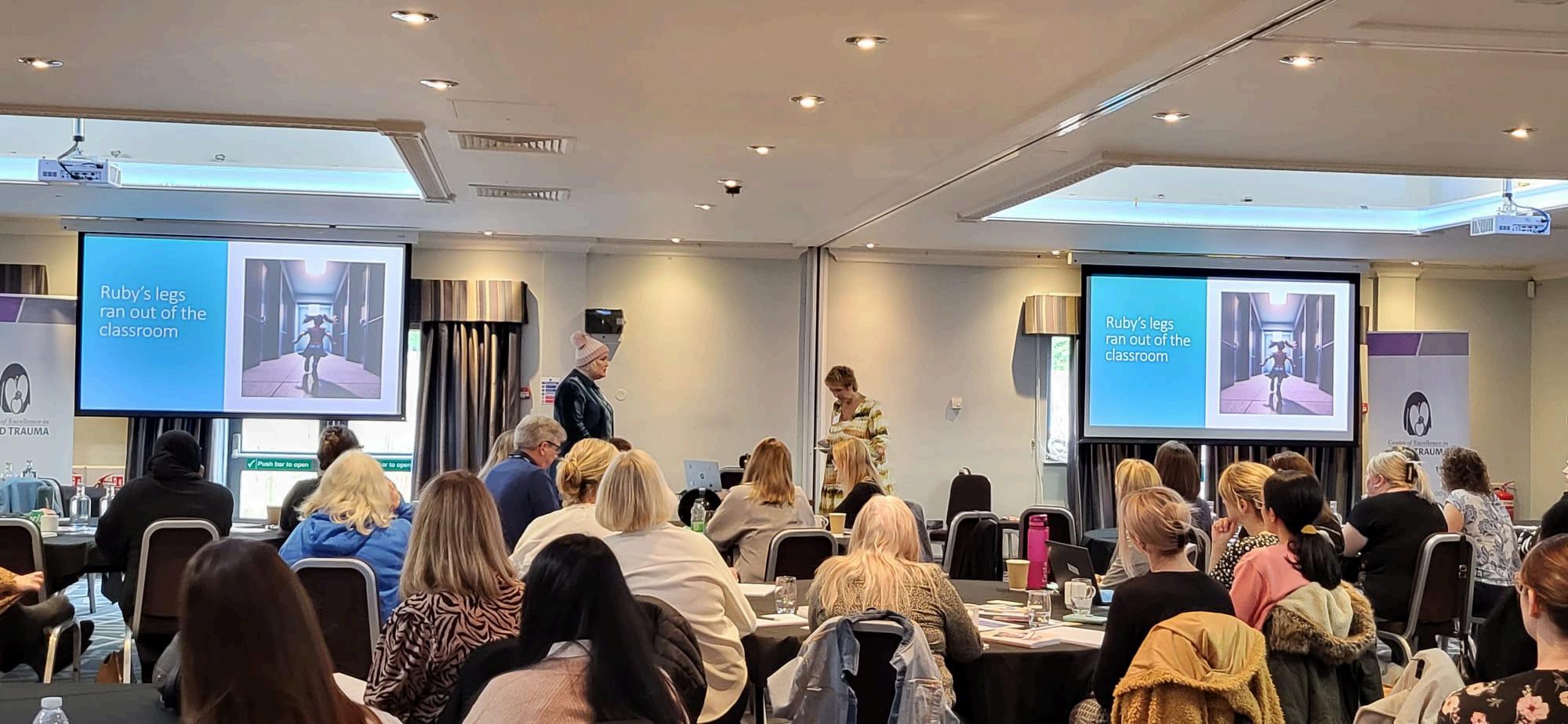

CoECT Training, Workshops & Events
Schedule 2025/2026 continued
Compassion Fatigue Day Retreat
Facilitator: Emma Edwards
Friday 30th January 2026, 10:00 am - 4: 00 pm, Gloucestershire
Friday 27 March 2026, 10:00 am - 4: 00 pm, Gloucestershire th
Friday 26 June 2026. 10:00 am - 4: 00 pm, Gloucestershire th
“What to do when nothing works “ Workshop
Trainers: Sarah Naish & Sarah Dillon
Monday 10 February 2026, 10:00 am - 3:00 pm, Gloucestershire th
Tuesday 16 June 2026, 10:00 am - 3:00 pm, Manchester th
Wednesday 9 September 2026, 10:00 am - 3: 00 pm, Wales th
Managing Challenging and Violent Behaviour
Trainer: Dave Edwards
Tuesday 17th & Wednesday 18th March 2026 – Gloucestershire
Tuesday 23rd & Wednesday 24th June 2026 – Manchester
For more information click on the QR code or go to https://wwwcoectcouk/live
TIPs Meet-Ups:
You don’t have to do it alone
Joinoneofourregionalpeersupportgroupsand connectwithotherparentsandcarerswhotrulygetit
Eachmonth,wemeetforanhourortwo sometimes online,sometimesinacosycafé,alocalcommunity space,orevenoutdoorswhentheweather’skind It’sa relaxed,welcomingspacetoshareexperiences,swap ideas,andsupporteachotherthroughtheupsand downsoffamilylife
Somegroupsstartonlineandthenmeetinpersononce they’vegrown,whileothersswitchbetweenthetwo becauseweknowhowbusylifecanbe.
Whetheryou’rejoiningfromyoursofaorsittingarounda tablewithacuppa,you’llfindrealconnection, understanding,andencouragementwaitingforyou.


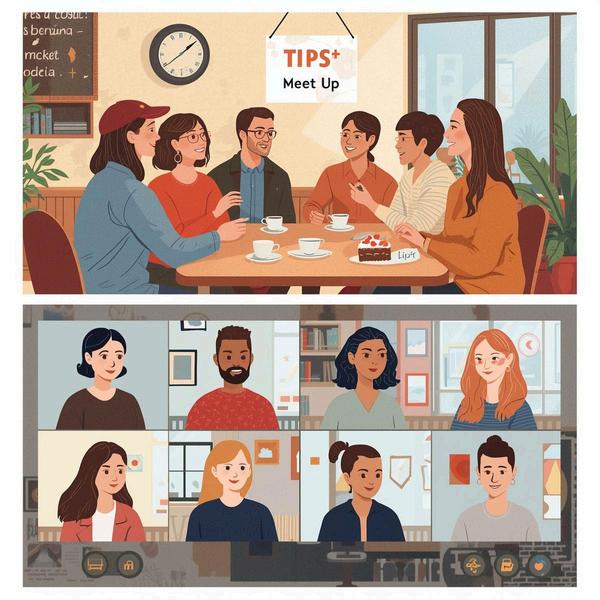
Written by Natalie Freeman
Ifyousupportchildrenwhohavelived throughearlytraumaorwhoare neurodiverse,you’llknowjusthow demandingthatrolecanbe.Parents, carers,teachers,therapists,andsocial workersoftengiveeverythingtheyhave emotionally,physically,andmentallyto ensurechildrenfeelsafe,supported,and understood
Butwhenyourfocusisalwaysonothers, it’seasytoforgetyourself.Overtime,the weightofresponsibilitycanleadto compassionfatigue:adeepexhaustion thatmakesithardertostaypatient, hopeful,andresilient.
ThisiswhereHaveningTechniques®can makearealdifference Haveningoffers practical,science-backedtoolsfor calmingthenervoussystem,reducing theeffectsofstressandtrauma,and restoringemotionalbalance Forcarers andprofessionals,itcanbelifechanging Forchildren,itcanmean beingsurroundedbyadultswhoare calmer,moreregulated,andmoreable toprovidethesaferelationshipsthey needtothrive
WhatExactlyIsHavening HaveningTechniques®weredeveloped byDr RonaldRudenaspartofagrowing fieldofpsycho-sensorytherapies approachesthatusesensoryinputto influencehowthebrainstoresand processesexperiences
Atitscore,Haveningcombinessoothing touch(onthearms,face,orhands)with guidedprocessesthatinvolveimagery, movement,orspecificlanguage The touchitselfgeneratescalmingdelta brainwaves,whichhelptoshiftthebrain intoamorerelaxedstate
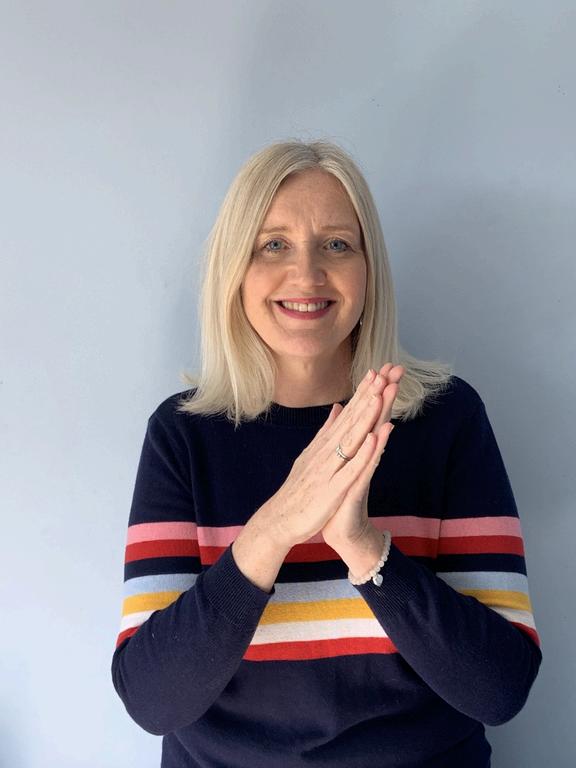
Theresult?Distressingmemoriesor feelingslosetheiremotionalcharge, stresslevelsdecrease,andthe individualfeelscalmerandsafer
WhatsetsHaveningapartfrommany approachesisthatit’snotjusta therapy“doneto”someone It’salsoa setoftoolsthatpeoplecanlearnto useforthemselves anytime, anywhere.
TheSilentStrainofCompassion Fatigue
Thoseworkingwithchildrenaffected bytraumaoftenhearaboutposttraumaticstress,attachment difficulties,andbehaviourchallenges. Butlessattentionispaidtowhat happenstotheadultswhoare supportingthem.
Compassionfatigueshowsupin subtlebutpowerfulways:
Youfeelemotionallynumb,asif you’verunoutofempathy Smallproblemsfeel overwhelming,andyourpatience isshorterthanitusedtobe Younoticeexhaustioncreepingin, evenwhenyou’resleepingwell
Youstartdoubtingwhetheryou’re makingadifferenceatall
Forparentsandcarers,thiscanfeel especiallydifficult theverypeople they’restrivingtonurtureendup triggeringfrustrationordetachment Forprofessionals,itcanleadto burnout,sicknessabsence,or

p themselves,evenforafew minutes,torestorecalmbefore responding.
Sharedregulation:Whenadults modelHaveningandself-soothing, childrenoftenmirrortheir calmness.
Familyresilience:Parentswholearn Haveningfrequentlysharethatit reducesconflictathomeand bringsmorejoyintofamilylife.
Thetechniquesdon’treplacetherapy orwidersupportsystems,butthey addanempoweringlayerofdaily regulation thedifferencebetween justsurvivingandtrulythriving
Trauma-InformedPracticeinAction
Acrosseducation,health,andsocial care,trauma-informedapproaches arenowseenasessential.They emphasisesafety,trust,choice, collaboration,andempowerment HaveningTechniques®naturallyalign witheachofthesevalues:
Safety:Thegentle,predictable natureofHaveningtouchcreatesa senseofrefugeinthebody. Trust:Nothinghappenswithout explanationandconsent,which buildsconfidence.
Choice:Peoplecanchoose whethertoself-Haven,receive touch,oradapttheapproach
An Invitation to Learn More
Collaboration:Haveningintegrates easilyalongsidetherapeuticand educationalmethods
If you’re a parent, carer, or professional supporting children with early trauma or neurodiverse needs, I invite you to explore Havening Techniques® Whether you use them for yourself, share them with families, or train to become a practitioner, you’ll be adding something powerful to your toolkit
Empowerment:Perhapsmost importantly,Haveningisteachable. Peoplewalkawaywithalifelong skilltheycanusewheneverthey needit
For details of upcoming Certified Havening Practitioner training and resources, visit http://wwwhaveningonlinecouk/ or Havening Techniques - Better Living Through Neuroscience
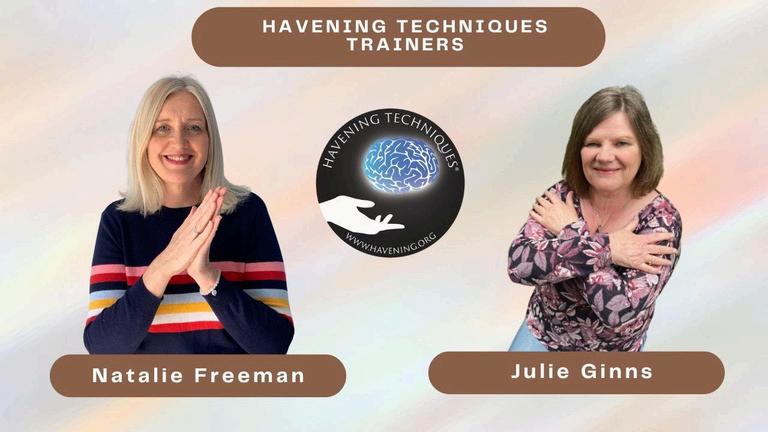

Beforecomingaparent,Ihadgrand ideasofwhatthefestiveseason mightlooklike Tripstoseethebig maninred,matchingpyjamason ChristmasEve,andalltheother festivitiesandtraditionsthatthe festiveperiodbrings WhatIhadn’t accountedforwasthesensory overloadthatcomeswithallofthis, nottomentionthechangein routinesandincreasedexcitement levelsforourchildren
IfIhadonepieceofadvicetooffer othersabouttoembarkonthe festiveseasonwiththeirchildrenit wouldbetopassonsomethingI wastoldbyanotherparentof childrenwithearlychildhood traumaandattachmentdifficulties. Thisistobeunapologeticinpushing backonwhatothersbelievetobe therightthingtodo,andfocuson meetingtheneedsofyourchildren andyourself.
Thefestiveseasonisnothelpfulto thetraumatisedbrain,however muchyou,andotherswantthisnot tobethecase Mytoptipsareas follows:
Saynotothingsyouknowwill putyouandyourchildrenunder pressure
Planyourdaysandactivitiesto createstructureandboundaries
Timetables,usingpicturesifyou needtothatallowsachildto understandwhattoexpect
Written by Russ Hartland-Shaw

Behonestwithothersaboutyour situation
Surroundyourselfwithotherswho havesomelevelofunderstanding ofyourparentingexperiences Communicatewherepossible withyourchildrenaboutcreating a‘survivalplan’–codewords, signssuchashandsonshoulders, establishingsafeplacestoexitto escapetoandregulatein.
Explaintoothersbeforehandthat thingsarelikelytofeeldifferentfor yourchildren
Beempatheticthatyourchildren mightbefeelingasenseofloss moreatthistimeyear
Donotunderestimatethatthe ideaofastrangemaninasuitis notgoingtofeeltriggeringor dauntingforyourchildren, regardlessoftheirearlylived experiences,thiscanbeascary conceptforthem
Considerotherknowntriggers andhowtheymightshowup, suchassharing,beingaround newpeople,stayinguplater Chooseyourrewardandstockup onit,ifitsgoodenoughforSanta, thenitissureasanything,good enoughforyou,treatyourselfand giveyourselfabreak!!
Andwhenyouareouttheotherside ofthefestiveperiod,thetreeisaway, theChristmascardsoffthe windowsill,andthelastofthe leftovershavebeeneaten,spend sometimereflectingonwhatworked, whatdidn’tandwhatyouhave learned
Aboveallelse,congratulateyourself fornavigatingwhatcanbeoneofthe mostcomplexandchallengingtimes forourchildrenwhohavehadahard starttolife

Thisgentle,heartwarmingstorybySarahNaishhelps childrenwhofeeluneasy,overwhelmed,or“wobbly” duringthefestiveseason.Perfectforlittleoneswhofind Christmasabittricky,itvalidatestheirfeelings, normalisesanxiety,andshowsthemit’sokaytofeelthe waytheydo.
BecauseChristmasshouldn’tjustbeaboutthepresents it’saboutfeelingsafe,understood,andloved.
Struggling with Christmas anxiety? You’re not alone.


